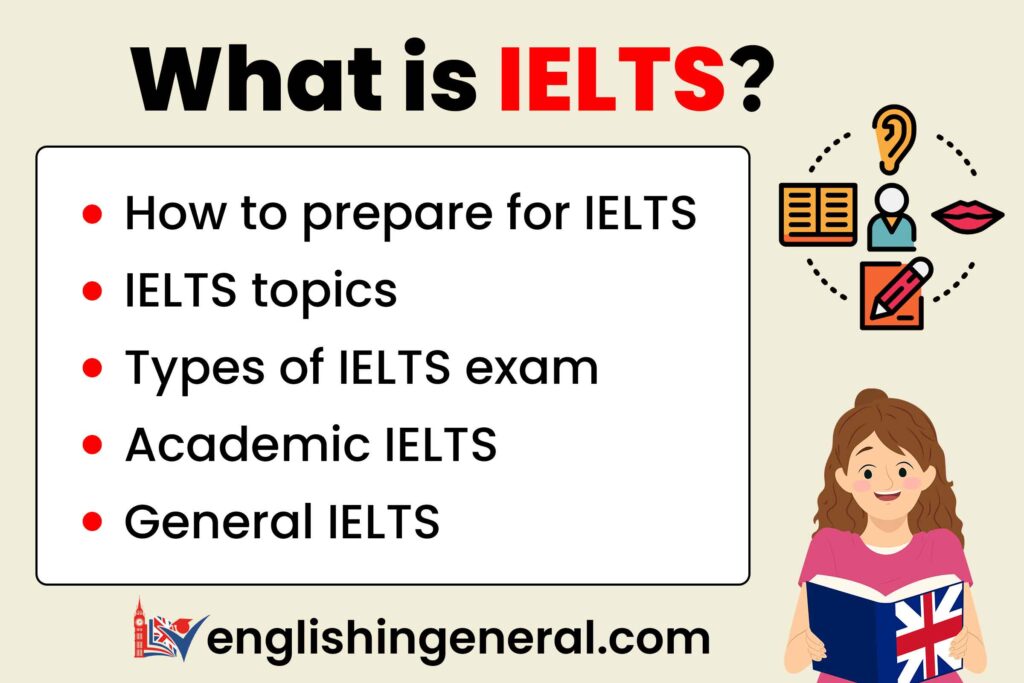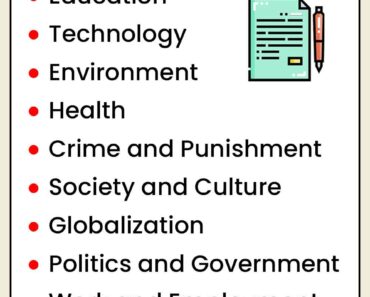
IELTS (International English Language Testing System) is a standardized test designed to assess the English language proficiency of non-native speakers who wish to study, work or live in an English-speaking country. The test is recognized by more than 10,000 organizations worldwide, including universities, employers, immigration authorities, and professional bodies.
There are two types of IELTS tests: the Academic test and the General Training test. The Academic test is intended for those who want to study at a higher education institution in an English-speaking country, while the General Training test is for those who want to work, immigrate or undertake non-academic training in an English-speaking country.
The IELTS test assesses the four main language skills: listening, reading, writing, and speaking. The test is scored on a nine-band scale, with each band corresponding to a level of English proficiency, from non-user (band score 1) to expert user (band score 9). The score requirements vary depending on the organization and the purpose for which the test is taken.
Preparing for the IELTS test can be challenging, but there are many resources available to help test-takers improve their English skills and succeed on the test. These resources include practice tests, study materials, and online courses. It is important to start preparing well in advance to ensure the best possible outcome on test day.
How to prepare for IELTS
Preparing for the IELTS exam can be challenging, but with the right approach, you can achieve a good score. Here are some tips on how to prepare for the IELTS exam:
- Understand the format of the exam: Before starting your preparation, it’s important to understand the format of the exam. The IELTS exam has four sections: listening, reading, writing, and speaking. Knowing the structure and timing of each section will help you prepare more effectively.
- Develop your language skills: The IELTS exam measures your ability to communicate in English. Therefore, it’s important to develop your language skills in all four areas: listening, reading, writing, and speaking. Read English newspapers, listen to English podcasts or music, practice writing essays and emails, and speak with native speakers or language partners.
- Practice sample tests: Practice makes perfect! You can find sample IELTS tests online or in test preparation books. Practicing sample tests will help you get familiar with the exam format and identify your strengths and weaknesses.
- Take a course or hire a tutor: Taking an IELTS preparation course or hiring a tutor can help you focus on your specific needs and get personalized feedback on your performance. A qualified teacher can provide you with strategies and tips for each section of the exam.
- Manage your time: Time management is crucial during the exam. Practice managing your time during your preparation by setting a timer for each section of the exam. This will help you get used to the timing and ensure that you have enough time to complete each section.
- Stay calm and confident: Finally, on the day of the exam, stay calm and confident. Trust in your preparation and don’t let nerves get the best of you. Remember to read the instructions carefully and manage your time effectively.
By following these tips and putting in the necessary time and effort, you can increase your chances of success on the IELTS exam.
IELTS Topics
The IELTS exam covers a wide range of topics to assess the English language proficiency of test-takers. Here are some of the topics that can appear on the IELTS exam:
Education: Questions related to education can cover topics such as school life, academic studies, teaching methods, and student life.
Society: Topics related to society can include social issues, community service, family life, and cultural customs and traditions.
Environment: Environmental topics can include pollution, climate change, energy conservation, and environmental policies.
Science and technology: Questions related to science and technology can cover topics such as the internet, mobile devices, space exploration, and advances in medicine.
Work: Work-related topics can include career choices, job satisfaction, work-life balance, and workplace culture.
Health: Health-related topics can include healthy lifestyle choices, healthcare systems, disease prevention, and mental health.
Arts and culture: Topics related to arts and culture can include literature, music, art, film, and entertainment.
Travel and tourism: Travel-related topics can include popular tourist destinations, travel experiences, and cultural differences in travel.
These topics are not exhaustive, and the actual questions on the exam can cover many different sub-topics within these areas. It’s essential to prepare for a wide range of topics and practice your language skills in all areas to perform well on the IELTS exam.
Types of IELTS Exam
The International English Language Testing System (IELTS) is a widely recognized test that assesses the English language proficiency of non-native English speakers. There are two types of IELTS exams: the IELTS Academic and the IELTS General Training. Both tests have different purposes and are designed to evaluate the language abilities of test-takers in different contexts.
IELTS Academic
This type of IELTS exam is intended for those who wish to study at an undergraduate or postgraduate level in an English-speaking country. The exam assesses the language proficiency of test-takers in academic contexts and measures their ability to comprehend and use complex academic language. The test consists of four sections: Listening, Reading, Writing, and Speaking.
The Listening and Speaking sections are the same for both the Academic and General Training tests, but the Reading and Writing sections are different. In the Academic version, the Reading section contains three long texts taken from books, journals, or newspapers, and test-takers are required to answer 40 questions based on the content. In the Writing section, test-takers are given two tasks: Task 1 requires test-takers to describe and interpret a graph or table, while Task 2 requires them to write an essay in response to a prompt.
IELTS General Training
This type of IELTS exam is intended for those who wish to work or immigrate to an English-speaking country. The exam assesses the language proficiency of test-takers in social and workplace contexts and measures their ability to communicate effectively in everyday situations. The test consists of four sections: Listening, Reading, Writing, and Speaking.
The Listening and Speaking sections are the same as in the Academic version, but the Reading and Writing sections are different. In the General Training version, the Reading section contains three shorter texts taken from advertisements, notices, and workplace documents, and test-takers are required to answer 40 questions based on the content. In the Writing section, test-takers are given two tasks: Task 1 requires them to write a letter in response to a situation, while Task 2 requires them to write an essay in response to a prompt.
In conclusion
The IELTS exam has two types: the IELTS Academic and the IELTS General Training. Each test is designed to evaluate the language abilities of test-takers in different contexts, such as academic or social and workplace situations. It’s essential to choose the right type of IELTS exam that suits your purpose and prepare accordingly to perform well on the test.

